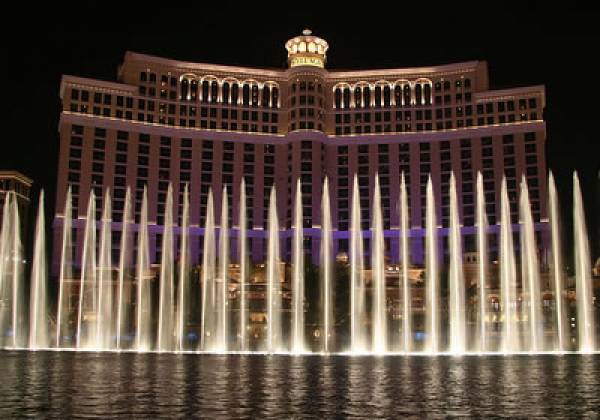Las Vegas, Travel Industry Worried Over State Tax Hikes

The travel industry, including a reeling Las Vegas, has its battle plans drawn. An epidemic of new or increased travel taxes-increasingly prompted by governmental budget quagmires--has spurred the travel industry to unite to battle the spread, writes Mary Ann McNulty of the Travel Management Blog.
Next year, the U.S. Travel Advisory Board anticipates creation of an advisory board that would focus on informing of the pros and cons of taxes. With the economy in freefall, more and more travelers are scrutinizing every single fee including state taxes.
USTA senior vice president Geoffrey Freeman told Travel Management: "There's no doubt, based on every bit of evidence, that localities and states are more desperate than ever for every bit of revenue," Freeman said. "Based on anecdotal evidence, it's apparent to us that they're trying more and more to [target] the visitor, or who they think might be the visitor, to fund it."
From the Travel Management Blog:
Taxing bodies--cities, counties and states--often believe that tourism taxes are paid by out-of-town visitors so it is "better to export the tax burden. The reality is quite different," according to the Lodging, Rental Car and Meal Taxes on Travelers in the Top 50 U.S. Cities report issued in August by the National Business Travel Association Foundation and Concur. "Most companies spend the majority of their car rental and hotel budgets in the areas where they have offices or other facilities. Further, more than half of car rentals are from car rental companies' local offices, rather than airport locations, suggesting that the majority of car rental customers are, in fact, local," the report stated.
Taxes, according to the report, also "factor into travel decision making. Cities, states or counties with the highest discriminatory travel taxes are likely losing business and may not even know about it." Meeting site-selection decisions are typically made on the total cost, including all taxes and fees, the report noted.
A newly formed Council on Room Tax Solutions by the International Society of Hotel Association Executives and American Hotel & Lodging Association, is already looking to help travelers, hotels and hotel associations educate policymakers in regard to taxes and fees.
The council's goals are to make sure that the "room tax doesn't get so high" as to be unreasonable, as well as to "make sure that the taxes are used appropriately," according to council co-chair Trisha Pugal, who also is president and CEO of the Wisconsin Innkeepers Association. AHLA governmental affairs senior vice president Shawn McBurney also co-chairs the council.
"The general purpose of a room tax is to fund tourism promotion so that cost isn't borne by a community. But when it's used for other services," such as city hall maintenance, residential services or to balance general fund budgets, travelers don't benefit, Pugal said.
Examples of this include Colorado's doubling of the rental car excise tax in order to fund road projects. Pugal also points to New Jersey's plan to raise car rental taxes by 5 percent in order to help boost the state's economy.
The state of Nevada and Las Vegas have also seen the tax increases.
As of this past July 1, Nevada increased the state sales tax by 0.35 percentage points, to 8.1 percent in Las Vegas and Clark County. It also hiked the hotel tax rate by three percentage points, but no more than 13 percent. In Las Vegas, the rate increased to 12 percent, from 9 percent.
Those taxes are on top of all the cheap Vegas Strip hotel rates that one could find all year round. Next week, for example, Caesar's Palace was offering rooms for an incredible $81 per night; The Imperial Palace had rooms for $30 a night; Harrah's had rooms for $34 per night; Circus Circus $23 per night; Palace Station $17 per night; and one could stay at the famed Bellagio for a mere $132 per night. In this scenario, visitors may not even notice the new 12 percent tax.
Jagajeet Chiba, Gambling911.com













